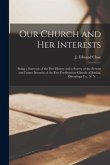Schade – dieser Artikel ist leider ausverkauft. Sobald wir wissen, ob und wann der Artikel wieder verfügbar ist, informieren wir Sie an dieser Stelle.
- Broschiertes Buch
- Merkliste
- Auf die Merkliste
- Bewerten Bewerten
- Teilen
- Produkt teilen
- Produkterinnerung
- Produkterinnerung
Communicates the depth and power of the Christian wisdom tradition’, and the promise of its dramatic rebirth in our time
Andere Kunden interessierten sich auch für
![The Religion of Man The Religion of Man]() Rabindranath TagoreThe Religion of Man16,99 €
Rabindranath TagoreThe Religion of Man16,99 €![The God of Intimacy and Action The God of Intimacy and Action]() Tony CampoloThe God of Intimacy and Action16,99 €
Tony CampoloThe God of Intimacy and Action16,99 €![Future of Everything: Essential Truths about the End Times Future of Everything: Essential Truths about the End Times]() William BoekesteinFuture of Everything: Essential Truths about the End Times15,99 €
William BoekesteinFuture of Everything: Essential Truths about the End Times15,99 €![The Adventurous Future The Adventurous Future]() Paul Haynes BowmanThe Adventurous Future26,99 €
Paul Haynes BowmanThe Adventurous Future26,99 €![The Life of the Spirit and the Life of To-day The Life of the Spirit and the Life of To-day]() Evelyn UnderhillThe Life of the Spirit and the Life of To-day22,99 €
Evelyn UnderhillThe Life of the Spirit and the Life of To-day22,99 €![Plain Words for Plain People [microform]: the Future Destiny of the Unsaved, Being an Inquiry or Brief Reply (in Five Letters) to Two Lectures Deliver Plain Words for Plain People [microform]: the Future Destiny of the Unsaved, Being an Inquiry or Brief Reply (in Five Letters) to Two Lectures Deliver]() Plain Words for Plain People [microform]: the Future Destiny of the Unsaved, Being an Inquiry or Brief Reply (in Five Letters) to Two Lectures Deliver15,99 €
Plain Words for Plain People [microform]: the Future Destiny of the Unsaved, Being an Inquiry or Brief Reply (in Five Letters) to Two Lectures Deliver15,99 €![Our Church and Her Interests: Being a Souvenir of the Past History and a Survey of the Present and Future Interests of the First Presbyterian Church Our Church and Her Interests: Being a Souvenir of the Past History and a Survey of the Present and Future Interests of the First Presbyterian Church]() Our Church and Her Interests: Being a Souvenir of the Past History and a Survey of the Present and Future Interests of the First Presbyterian Church20,99 €
Our Church and Her Interests: Being a Souvenir of the Past History and a Survey of the Present and Future Interests of the First Presbyterian Church20,99 €-
-
-
Communicates the depth and power of the Christian wisdom tradition’, and the promise of its dramatic rebirth in our time
Produktdetails
- Produktdetails
- Verlag: Monkfish Book Publishing
- 2nd edition
- Seitenzahl: 256
- Erscheinungstermin: 24. April 2018
- Englisch
- Abmessung: 228mm x 151mm x 20mm
- Gewicht: 383g
- ISBN-13: 9781939681829
- ISBN-10: 1939681820
- Artikelnr.: 47743766
- Herstellerkennzeichnung
- Libri GmbH
- Europaallee 1
- 36244 Bad Hersfeld
- gpsr@libri.de
- Verlag: Monkfish Book Publishing
- 2nd edition
- Seitenzahl: 256
- Erscheinungstermin: 24. April 2018
- Englisch
- Abmessung: 228mm x 151mm x 20mm
- Gewicht: 383g
- ISBN-13: 9781939681829
- ISBN-10: 1939681820
- Artikelnr.: 47743766
- Herstellerkennzeichnung
- Libri GmbH
- Europaallee 1
- 36244 Bad Hersfeld
- gpsr@libri.de
Bruno Barnhart was an author, spiritual director and monk of New Camaldoli Hermitage in Big Sur, California. He is the author of several books including "The Good Wine: Reading John from the Center" and "Second Simplicity: The Inner Shape of Christianity." He died in 2015. Cyprian Consiglio, OSB Cam, is an author and a monk of New Camaldoli Hermitage in Big Sur, California, where he currently serves as prior of the community. His most recent book is Spirit, Soul, Body: Toward an Integral Christian Spirituality. Cynthia Bourgeault is the author of nine books including "The Holy Trinity and the Law of Three", "The Meaning of Mary Magdalene", and "The Wisdom Jesus."She has also authored or contributed to numerous articles and courses on the Christian spiritual life. She is a past Fellow of the Institute for Ecumenical and Cultural research at St. John's Abbey in Collegeville, MN, and an oblate of New Camaldoli Monastery in Big Sur, California.
Contents
INTRODUCTION
1. A Preliminary Overview
2. The Bias
3. The Taste
4. Thinking about Wisdom
5. The Christian Wisdom Tradition
6. The Eclipse of Wisdom in the West
7. The Time of Vatican II: Toward a Rebirth of Christian Wisdom
8. The Way of Wisdom
9. Four Historical Moments
10. Four Movements
11. Spirit and History
MOVEMENT I: THE SAPIENTIAL AWAKENING
1. Wonder and Awakening
2. The Sapiential Event and Its Eclipse
3. The Sapiential Awakening of the Twentieth Century
4. Henri de Lubac: The Anatomy of Christian Wisdom
5. fean Leclercq: The Two Medieval Theologies
6. Cipriano Vagaggini: Between Two Wisdoms
7. The Quaternary Unfolding of the Christ-Mystery
8. The Revolution of esus
9. Rationalization of the Mystery
10. Thomas Merton: Opening Christian Wisdom (I)
11. Karl Rahner: Opening Christian Wisdom (II)
12. The Paradox of Christian Wisdom: The Word of the Cross
13. Conclusion
MOVEMENT II: THE EASTERN TURN
1. The New East-West Relationship
2. Nonduality
3. Christian Nonduality I
4. Baptismal Initiation: Point of Contact with the East
and Pivot of Identity
5. Theological Corollaries of the Principle of Nondual
Baptismal Identity
6. (I) Breaking through the Container of Dualistic Christianity
7. (II) Unitive Interpretation of the Christ-mystery
8. (III) Unitive Interpretation of the New Testament
9. (IV) A New Theology Centered in the Explicit
Unitive Principle
10. (V) Unitive Anthropology
11. (VI) Fullness at the Beginning
12. (VII) The Trajectory of Life: From Baptism to Eucharist
13. (VIII) Contemplation as Conscious Experience
of Baptismal Identity
14. (IX) History Understood in the Light
of Unitive Self- realization
MOVEMENT III: THE WESTERN TURN
1. Modernity
2. The Vocation of the West
3. The Shape of Western History
4. Renaissance
5. The Modern Individual
6. Freedom
7. esus' Revolution and the History of the West
8. Participation and History
9. Wisdom and the West
10. The Shadow and the Destiny of the West
MOVEMENT IV: THE GLOBAL TURN
l. Postmodernity
2. Interpretations of Globalization
3. Toward a Global Consciousness
4. Resistance to Incarnation
5. The Descent of History
6. Globd Christianity: The Southern Turn
7. Christian Nonduality Ift lncarnation
8. The Incarnation of Wisdom
EPILOGUE
NOTES
BIBLIOGR,APHY
INDEX
INTRODUCTION
1. A Preliminary Overview
2. The Bias
3. The Taste
4. Thinking about Wisdom
5. The Christian Wisdom Tradition
6. The Eclipse of Wisdom in the West
7. The Time of Vatican II: Toward a Rebirth of Christian Wisdom
8. The Way of Wisdom
9. Four Historical Moments
10. Four Movements
11. Spirit and History
MOVEMENT I: THE SAPIENTIAL AWAKENING
1. Wonder and Awakening
2. The Sapiential Event and Its Eclipse
3. The Sapiential Awakening of the Twentieth Century
4. Henri de Lubac: The Anatomy of Christian Wisdom
5. fean Leclercq: The Two Medieval Theologies
6. Cipriano Vagaggini: Between Two Wisdoms
7. The Quaternary Unfolding of the Christ-Mystery
8. The Revolution of esus
9. Rationalization of the Mystery
10. Thomas Merton: Opening Christian Wisdom (I)
11. Karl Rahner: Opening Christian Wisdom (II)
12. The Paradox of Christian Wisdom: The Word of the Cross
13. Conclusion
MOVEMENT II: THE EASTERN TURN
1. The New East-West Relationship
2. Nonduality
3. Christian Nonduality I
4. Baptismal Initiation: Point of Contact with the East
and Pivot of Identity
5. Theological Corollaries of the Principle of Nondual
Baptismal Identity
6. (I) Breaking through the Container of Dualistic Christianity
7. (II) Unitive Interpretation of the Christ-mystery
8. (III) Unitive Interpretation of the New Testament
9. (IV) A New Theology Centered in the Explicit
Unitive Principle
10. (V) Unitive Anthropology
11. (VI) Fullness at the Beginning
12. (VII) The Trajectory of Life: From Baptism to Eucharist
13. (VIII) Contemplation as Conscious Experience
of Baptismal Identity
14. (IX) History Understood in the Light
of Unitive Self- realization
MOVEMENT III: THE WESTERN TURN
1. Modernity
2. The Vocation of the West
3. The Shape of Western History
4. Renaissance
5. The Modern Individual
6. Freedom
7. esus' Revolution and the History of the West
8. Participation and History
9. Wisdom and the West
10. The Shadow and the Destiny of the West
MOVEMENT IV: THE GLOBAL TURN
l. Postmodernity
2. Interpretations of Globalization
3. Toward a Global Consciousness
4. Resistance to Incarnation
5. The Descent of History
6. Globd Christianity: The Southern Turn
7. Christian Nonduality Ift lncarnation
8. The Incarnation of Wisdom
EPILOGUE
NOTES
BIBLIOGR,APHY
INDEX
Contents
INTRODUCTION
1. A Preliminary Overview
2. The Bias
3. The Taste
4. Thinking about Wisdom
5. The Christian Wisdom Tradition
6. The Eclipse of Wisdom in the West
7. The Time of Vatican II: Toward a Rebirth of Christian Wisdom
8. The Way of Wisdom
9. Four Historical Moments
10. Four Movements
11. Spirit and History
MOVEMENT I: THE SAPIENTIAL AWAKENING
1. Wonder and Awakening
2. The Sapiential Event and Its Eclipse
3. The Sapiential Awakening of the Twentieth Century
4. Henri de Lubac: The Anatomy of Christian Wisdom
5. fean Leclercq: The Two Medieval Theologies
6. Cipriano Vagaggini: Between Two Wisdoms
7. The Quaternary Unfolding of the Christ-Mystery
8. The Revolution of esus
9. Rationalization of the Mystery
10. Thomas Merton: Opening Christian Wisdom (I)
11. Karl Rahner: Opening Christian Wisdom (II)
12. The Paradox of Christian Wisdom: The Word of the Cross
13. Conclusion
MOVEMENT II: THE EASTERN TURN
1. The New East-West Relationship
2. Nonduality
3. Christian Nonduality I
4. Baptismal Initiation: Point of Contact with the East
and Pivot of Identity
5. Theological Corollaries of the Principle of Nondual
Baptismal Identity
6. (I) Breaking through the Container of Dualistic Christianity
7. (II) Unitive Interpretation of the Christ-mystery
8. (III) Unitive Interpretation of the New Testament
9. (IV) A New Theology Centered in the Explicit
Unitive Principle
10. (V) Unitive Anthropology
11. (VI) Fullness at the Beginning
12. (VII) The Trajectory of Life: From Baptism to Eucharist
13. (VIII) Contemplation as Conscious Experience
of Baptismal Identity
14. (IX) History Understood in the Light
of Unitive Self- realization
MOVEMENT III: THE WESTERN TURN
1. Modernity
2. The Vocation of the West
3. The Shape of Western History
4. Renaissance
5. The Modern Individual
6. Freedom
7. esus' Revolution and the History of the West
8. Participation and History
9. Wisdom and the West
10. The Shadow and the Destiny of the West
MOVEMENT IV: THE GLOBAL TURN
l. Postmodernity
2. Interpretations of Globalization
3. Toward a Global Consciousness
4. Resistance to Incarnation
5. The Descent of History
6. Globd Christianity: The Southern Turn
7. Christian Nonduality Ift lncarnation
8. The Incarnation of Wisdom
EPILOGUE
NOTES
BIBLIOGR,APHY
INDEX
INTRODUCTION
1. A Preliminary Overview
2. The Bias
3. The Taste
4. Thinking about Wisdom
5. The Christian Wisdom Tradition
6. The Eclipse of Wisdom in the West
7. The Time of Vatican II: Toward a Rebirth of Christian Wisdom
8. The Way of Wisdom
9. Four Historical Moments
10. Four Movements
11. Spirit and History
MOVEMENT I: THE SAPIENTIAL AWAKENING
1. Wonder and Awakening
2. The Sapiential Event and Its Eclipse
3. The Sapiential Awakening of the Twentieth Century
4. Henri de Lubac: The Anatomy of Christian Wisdom
5. fean Leclercq: The Two Medieval Theologies
6. Cipriano Vagaggini: Between Two Wisdoms
7. The Quaternary Unfolding of the Christ-Mystery
8. The Revolution of esus
9. Rationalization of the Mystery
10. Thomas Merton: Opening Christian Wisdom (I)
11. Karl Rahner: Opening Christian Wisdom (II)
12. The Paradox of Christian Wisdom: The Word of the Cross
13. Conclusion
MOVEMENT II: THE EASTERN TURN
1. The New East-West Relationship
2. Nonduality
3. Christian Nonduality I
4. Baptismal Initiation: Point of Contact with the East
and Pivot of Identity
5. Theological Corollaries of the Principle of Nondual
Baptismal Identity
6. (I) Breaking through the Container of Dualistic Christianity
7. (II) Unitive Interpretation of the Christ-mystery
8. (III) Unitive Interpretation of the New Testament
9. (IV) A New Theology Centered in the Explicit
Unitive Principle
10. (V) Unitive Anthropology
11. (VI) Fullness at the Beginning
12. (VII) The Trajectory of Life: From Baptism to Eucharist
13. (VIII) Contemplation as Conscious Experience
of Baptismal Identity
14. (IX) History Understood in the Light
of Unitive Self- realization
MOVEMENT III: THE WESTERN TURN
1. Modernity
2. The Vocation of the West
3. The Shape of Western History
4. Renaissance
5. The Modern Individual
6. Freedom
7. esus' Revolution and the History of the West
8. Participation and History
9. Wisdom and the West
10. The Shadow and the Destiny of the West
MOVEMENT IV: THE GLOBAL TURN
l. Postmodernity
2. Interpretations of Globalization
3. Toward a Global Consciousness
4. Resistance to Incarnation
5. The Descent of History
6. Globd Christianity: The Southern Turn
7. Christian Nonduality Ift lncarnation
8. The Incarnation of Wisdom
EPILOGUE
NOTES
BIBLIOGR,APHY
INDEX

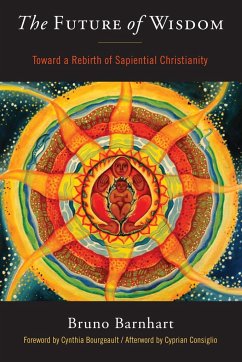
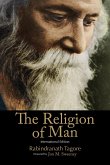
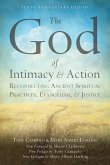

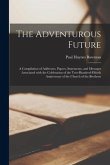

![Plain Words for Plain People [microform]: the Future Destiny of the Unsaved, Being an Inquiry or Brief Reply (in Five Letters) to Two Lectures Deliver Plain Words for Plain People [microform]: the Future Destiny of the Unsaved, Being an Inquiry or Brief Reply (in Five Letters) to Two Lectures Deliver](https://bilder.buecher.de/produkte/66/66159/66159825m.jpg)
